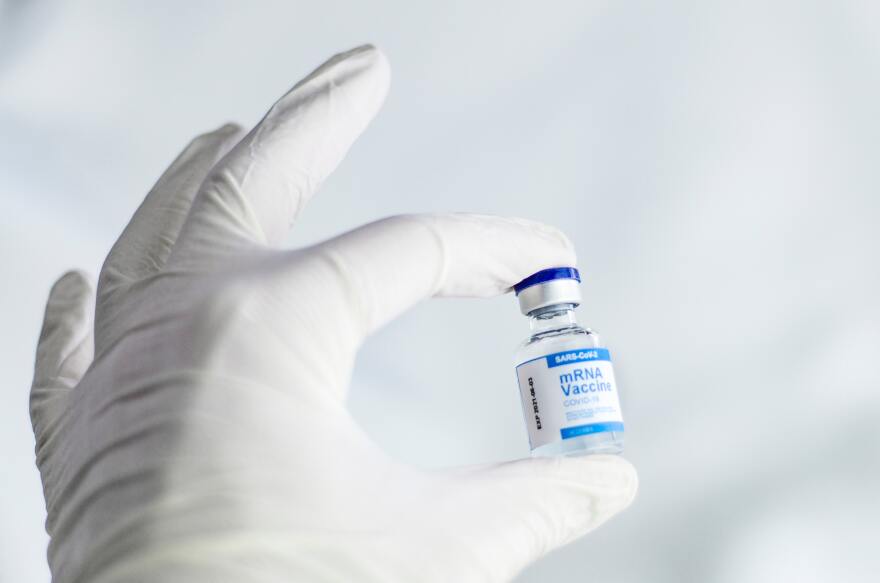Iowans ages 12 and older are now eligible to get the newest mRNA COVID-19 booster vaccination.
Federal officials authorized the new booster earlier this month. They approved the Pfizer shot for people 12 and older and the Moderna shot for those 18 and older.
The new boosters differ from previous booster doses in that they're bivalent, or protect against two strains of the coronavirus, including the high contagious omicron BA.5 subvariant, which accounts for the majority of cases in Iowa currently.
Federal officials recommend people get this new booster at least two months after their last dose of any COVID vaccination, whether that was another booster or a dose from an initial vaccination series.
People are still eligible to get the new Pfizer or Moderna booster even if they have not previously had another dose of an mRNA vaccine.
Lisa Veach, an infectious disease specialist with UnityPoint, said people who have recently gotten another booster or had a COVID infection may want to wait three months for optimal protection.
"Sometimes people hear that two month interval and think, 'Oh my goodness, I need to get it right at two months,'" she said. "It's just important to realize that that's a minimum and that it's absolutely fine and maybe slightly beneficial to wait a bit longer than that."
Veach encourages Iowans to consult with their doctors if they are unsure when they should get the new booster shot.
The authorization of the new shot comes at the same time as the annual flu shot and at the start of respiratory virus season, a strategic move by the federal government.
Health providers like Mike Brownlee, the chief pharmacy officer at the University of Iowa Hospitals and Clinics, said this timing is helpful because they can push both shots at once.
Brownlee said federal officials are talking about making COVID boosters a yearly shot, like the flu shot.
"As things are trending over the year, we create a more specific booster just like we do with the flu that has strains that we believe are going to be covered by the booster that will help protect our families ourselves and our communities," he said.
According to the CDC, 63 percent of Iowans are fully vaccinated – meaning they’ve received that initial series of shots.
However, just 55 percent of those who got fully vaccinated went on to get the first recommended booster dose last year.
Brownlee said Iowans should get this new bivalent booster, even if they've missed previous recommended boosters because it will offer the strongest protection against severe illness in time for respiratory virus season.
Even though case counts and hospitalizations are trending downwards, Brownlee said he wants to remind Iowans there is still in a pandemic.
“The cases for COVID have not come down to flu level levels yet with hospitalizations and with death," he said. "And it's important to note that we still have some work to do, and we can all play our part in that."




